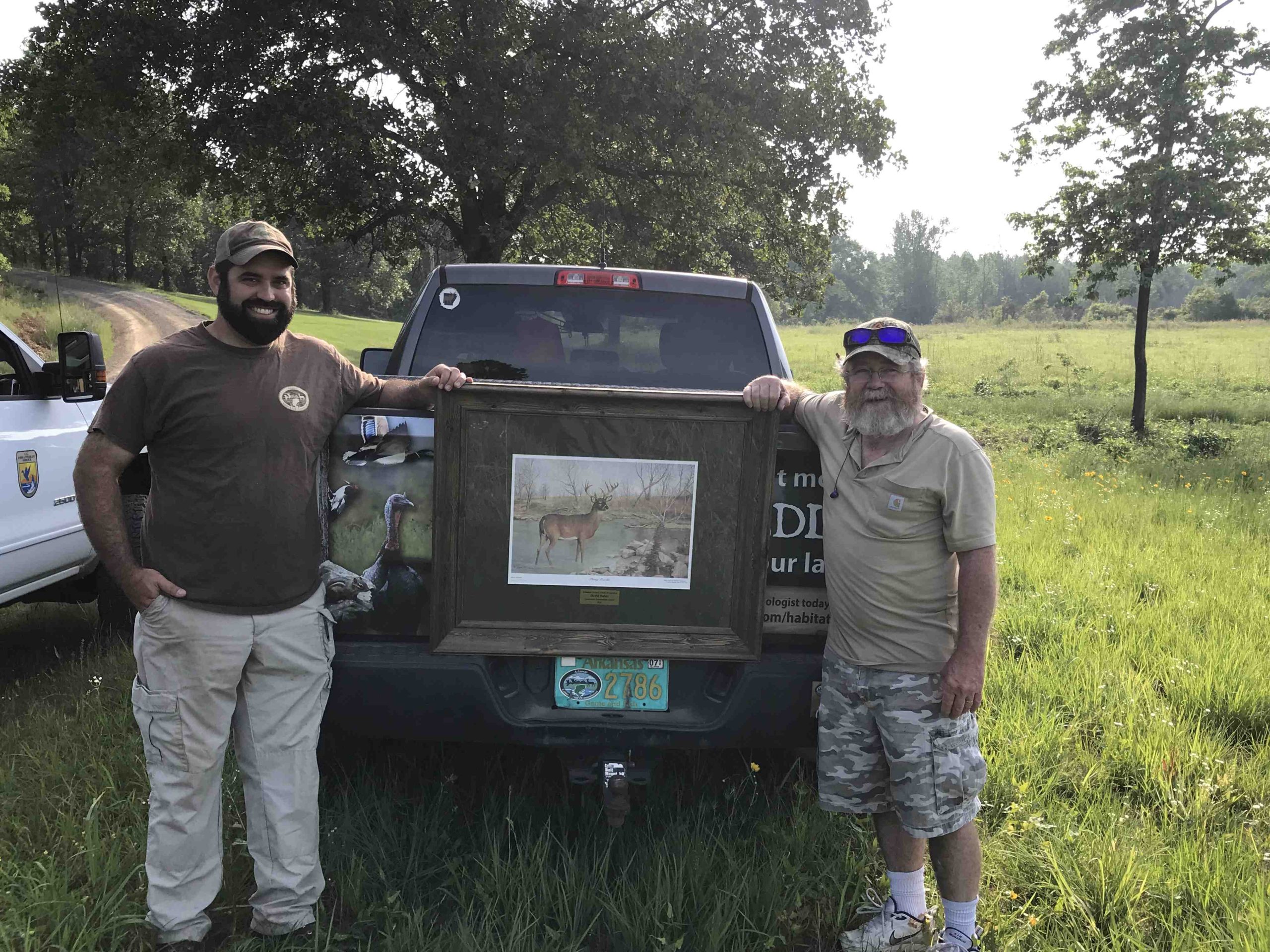In May, Partners for Conservation was honored to be invited to participate in a Private Lands Biologist Training session in the Mississippi Delta region of Arkansas. This biennial event draws together private lands biologists employed by local, state, federal, nonprofit, and for-profit corporations that work with landowners all over the state. Some of the organizations represented include local conservation districts, Arkansas Game and Fish Commission, Arkansas Forestry Commission, University of Arkansas Extension, U.S. Fish and Wildlife Service – Partners Program, USDA-Natural Resources Conservation Service, Quail Forever/Pheasants Forever, The Nature Conservancy among a number of others including some from neighboring states.
The group spent two days together hearing from a number of speakers, including actual landowners, about topics critical to working with landowners. With the diverse organizations represented, much of the training presented related to a better understanding of landowner and agricultural producer perceptions, needs, and values. Arkansas, like many states in the Central and Eastern United States, is overwhelmingly private land where wildlife and natural resource management does not occur without the engagement and partnership of landowners.
Every agency and organization represented had a slightly different set of services that they could offer landowners, which is good since landowner needs and interests when it comes to conservation are also diverse. This group of private lands biologists in Arkansas clearly demonstrates a strong sense of community and partnership as they work together to help Arkansas landowners interested in conservation.
Towards the end of the training, the biologists took an opportunity to recognize some of their own for annual or lifetime accomplishments in their service to landowners and partnership. Three landowners were also recognized by the group for their stewardship efforts. David Baker (Menifee, Conway County), Kenneth and Grady Harvell (Izard County), and Joel and Sloan Hampton (Arkansas County) were all recognized for their conservation efforts with individual framed prints. The work that these landowners were recognized for shared several attributes:
- they all involved more than one agency or organization partner in their efforts to improve their land for wildlife;
- they all have invested a great deal of time and money on their partnership work to benefit Arkansas’s natural resources;
- they all share a hunger to learn more about what they can do for their property; and
- they all have demonstrated a willingness to share what they have learned and done with their neighbors.
Congratulations and thank you for the great work the private lands biologist community and their landowner partners are doing for the people of Arkansas.

